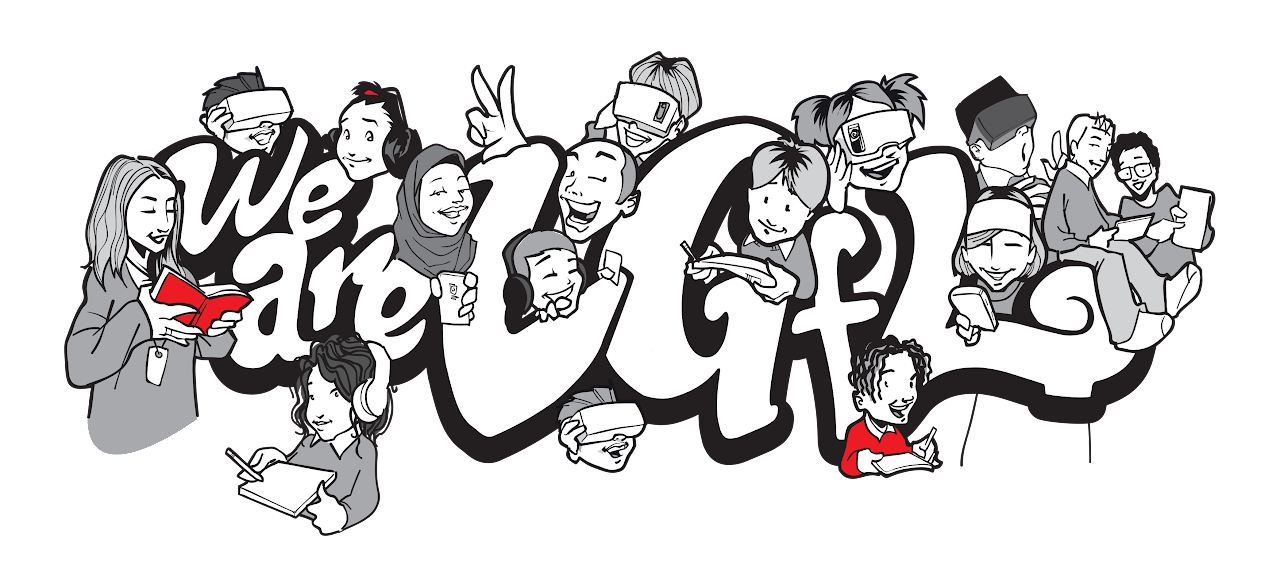Dyslexia
Spelling support
Spelling is one of the biggest, and most widely experienced difficulties for the dyslexic child and adult. Most dyslexic people can learn to read well with the right support. However, spelling appears to be a difficulty that persists throughout life.
It's not entirely understood why this is the case.
It is known that dyslexia impacts phonological processing and memory. This means that dyslexic individuals can have difficulty hearing the different small sounds in words (phonemes) and can't break words into smaller parts in order to spell them.
Many children with dyslexia find it difficult to learn how letters and sounds correspond to each other and may not be able to recall the correct letters to be able to spell the sounds in words.
The complexity of the English language means that learners also have to remember irregular spelling patterns and sight words.
Although spelling is likely to be something that a dyslexic person always finds challenging, there are strategies that parents and teachers can put in place to support learning.
Visual support ideas
Using different writing implements such as gel pens, chalk on the playground, felt tips, and glitter pens.
Use of software such as Wordshark. Technology provides a fun and effective solution for students learning to read and spell, whether they find spelling easy or difficult.
Rainbow writing: write your spelling words. Now, write each letter in a different colour.
Blue Vowels: Write your spelling words. Trace over the vowels in each word using the colour blue.
Helen Arkell Spelling Windows
A simple but effective multi-sensory resource to support the spelling of single words. It is reusable and easily personalised.
The laminated folding card with window pockets has an instruction card, 4 coloured drywipe pens and 50 blank cards.
This is a fantastic resource from Helen Arkell, which has been tried and tested in schools and shown to achieve great results.
Spin, Read and Spell! Vowel Spellings
Made by Phonic Books this is a photocopiable workbook, covering alternative vowel spellings for each phoneme and multi-syllable words.
Fun and engaging reading game focusing on alternative vowel spellings which can so often confuse.
Choose the level of difficulty, whether two alternative spellings, four alternative spellings or additional spellings.
Reinforces vowel diagraph through multi-sensory games and activities.

Support for spelling tests - accessible anytime and anywhere
The 'Spell Blast' encourages pupils to learn spellings while they do what comes naturally; play and compete against each other.
As they progress through the levels, the words automatically adjust to the pupils’ ability so that they never find them too easy or too difficult.
There is always a challenge, if no other live players are waiting for a game, robots take over, so it always appears that there are multiple players. The scoreboard shows your place in the class, school and world.
Feedback is built into this tool and teachers can see detailed information about the achievements of their pupils as well as which aspects they have found difficult. A word cloud shows commonly misspelt words.
Write the word correctly for the learner.
Ask the learner to look at it carefully- allow about 10 seconds
Cover the word.
Ask the learner to write it out.
Have the learner say the letter names aloud as s/he writes (if letter names are known).
Ask the learner to check their spelling with the correct spelling
If incorrect, notice any mistakes and have the learner look at the correct version again, cover, and write the word again.
If incorrect again, repeat the procedure until the word is correct.
Chaining is especially useful when working with individual learners and for tackling irregular words.
It makes use of visualisation skills.
Make the word with magnetic letters.
The learner removes the first letter and then replaces it.
The learner removes the first two letters and replaces them in the correct order.
Continue until all letters have been removed and replaced correctly.
The teacher writes the word with the first letter missing, and the learner writes the missing letter.
The teacher writes the word with the first two letters missing, and the learner writes the missing letters.
Continue until all letters have been written correctly. This may take several attempts.
Dictate a simple sentence containing the word.
Overlearning common spelling patterns in words such as -ace in space, face, race, trace, lace, and brace is essential to help make spelling a list of words with the same word family easier.
Other advice for onset and rime
Use lowercase magnetic letters, make the word in two parts, the onset, and the rime, saying the sound chunks as you do so, e.g , t-op
Then, push the onsets and rimes together as you say the whole word.
Ask the learner to do the same.
Ask the learner to write the words from memory.
If incorrect, repeat the process until correct.
Other supporting ideas
Make a "Happy Families" rhyming game with chosen words ( -ake,- ole, - ace)
Deal five cards to each player and place the rest face down on the table. Players should take turns picking up a card from the pack and must throw a card away.
The winner is the first player to get a "family" of four.
At the end of the game, ask the learner to read the cards they have collected.
Wordshark provides a fun and effective games-based solution for students learning to spell and read.
The program is especially effective in helping students with special educational needs, including dyslexia.
Visit: https://www.wordshark.co.uk/


